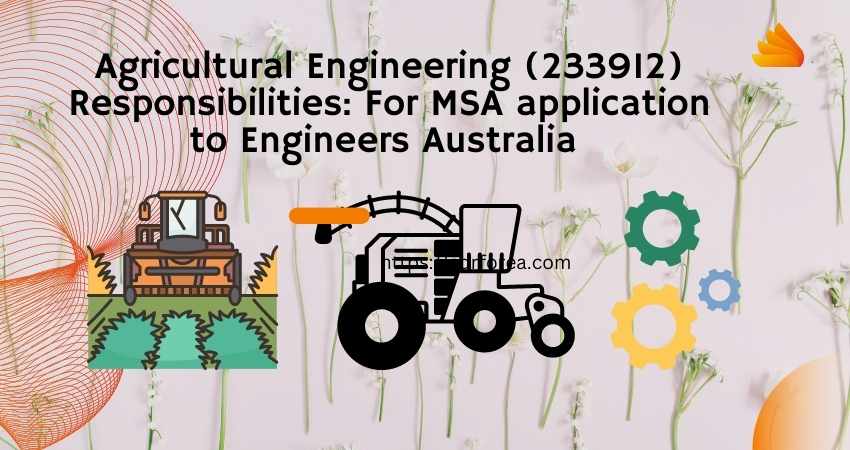Agricultural engineering, also known as natural resources engineering, is a critical field that is responsible for ensuring the development and use of agricultural land, machinery, and equipment. Agricultural engineers work to ensure the safety, efficiency, and sustainability of agricultural operations, which is crucial in meeting the growing demand for food worldwide.
To become an agricultural engineer, a bachelor’s degree or higher qualification is usually required. In some instances, relevant experience is also required, and registration or licensing may be necessary. Once qualified, agricultural engineers can perform a range of tasks, including the following:

Planning and directing the construction of rural electric-power distribution systems, and irrigation, drainage, and flood-control systems for soil and water conservation. Agricultural engineers work to ensure that agricultural lands have access to reliable sources of power and water, which is essential for the success of farming operations.
Designing, developing, and supervising the manufacture of agricultural machinery and equipment. Agricultural engineers are responsible for designing and developing equipment that can improve the efficiency and productivity of agricultural operations. This can include everything from tractors and harvesters to irrigation systems and sensors.
Determining layouts and supervising the construction of farm buildings, crop processing plants and equipment, and systems for animals and animal products. Agricultural engineers work to ensure that agricultural buildings and equipment are designed and constructed in a way that is safe, efficient, and sustainable. This can include everything from animal housing to crop processing facilities.
Designing and using sensing, measuring, and recording devices and instrumentation to study such problems as the effects of temperature, humidity, and light on plants or animals, or the relative effectiveness of different methods of applying insecticides. Agricultural engineers use a range of sophisticated technologies to gather data and insights into the performance of agricultural operations, which can be used to improve productivity and sustainability.
ANZSCO – Aeronautical engineers Australia: You need to Know
Designing and supervising the installation of equipment and instruments used to evaluate and process farm products, and to automate agricultural operations. Agricultural engineers are responsible for developing and implementing automation technologies that can improve the efficiency and productivity of agricultural operations. This can include everything from robotic milkers to automated crop harvesters. In conclusion, agricultural engineering is a critical field that plays a vital role in ensuring the sustainability and efficiency of agricultural operations. With the growing demand for food worldwide, the role of agricultural engineers has never been more important. If you are interested in a career in agricultural engineering, a bachelor’s degree or higher qualification is usually required, along with relevant experience and possibly registration or licensing. With the right skills and qualifications, you can play a vital role in helping to feed the world.
